The results of the project “Anti-crisis Potential of Youth Policies in Russia and Europe”
The project " Anti-crisis Potential of Youth Policies in Russia and Europe in the Era of Global Risks: National Imaginary, Patriotism and Social Engagement" is almost over. In the course of the project, researchers conducted a comparative analysis of youth policies achieving anti-crisis solutions in Germany, Finland, Great Britain, Greece, and Russia. The results of the study were presented at seminars, conferences, and roundtables dedicated to youth and youth policy.
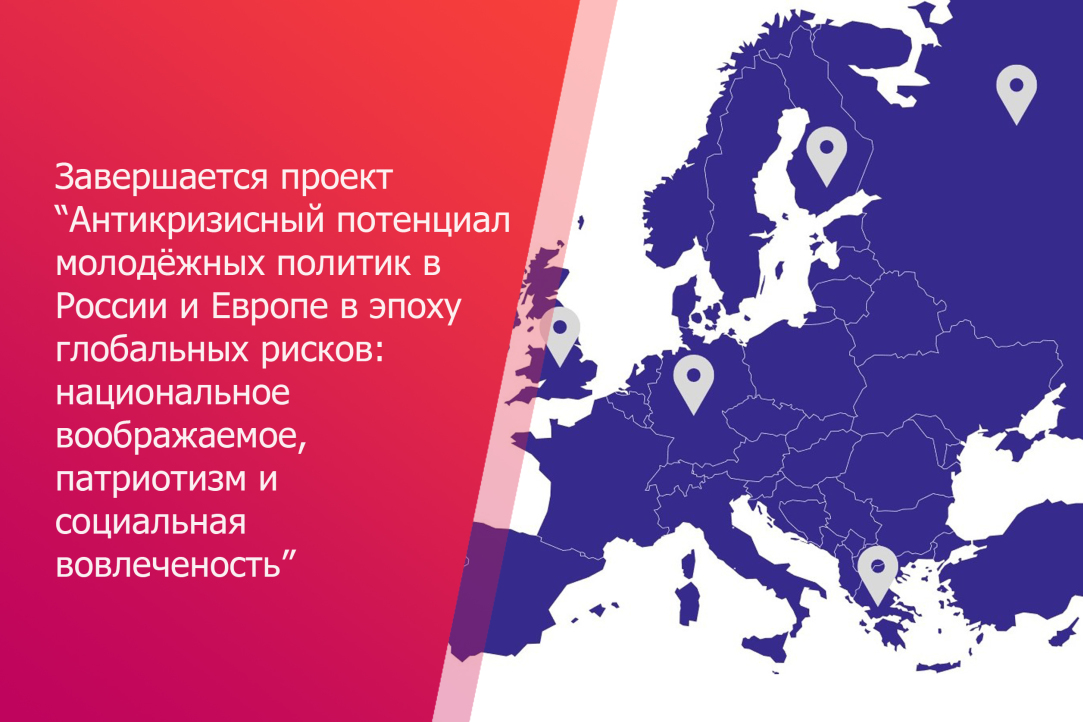
During eight months our researchers gathered a rich empirical material, including the following:
- interviewed 62 youth policy experts from Germany, Finland, Great Britain, Greece, and Russia;
- conducted a cross-country comparative analysis of macroeconomic indicators for youth;
- analyzed current sociological discussions on youth policies in Europe and Russia;
- studied official materials of national youth policies in Germany, Finland, Great Britain, Greece, and Russia.
In addition, the CYS research team participated in seminars, roundtables, and conferences to discuss preliminary results. The study has also coincided with extensive discussions of the draft law on youth policy of the Russian Federation in academia. Certainly, the project team also took part in meetings of scientists engaged in youth studies. As a result of these discussions, a joint statement from Russia's scientific community with recommendations for improving the already existing law "On Youth Policy" was drafted. These events clearly show how the youth issue has become more relevant to the state and how the academic and other debates surrounding it have expanded.
At the end of February and the beginning of March seminars at which researchers presented the results of the project were conducted.
On February 26th, the seminar "Growing Up Can't Be Assisted: The Role of Youth Policy in the Maturation Process" was held at the discussion club "18+/-" (a joint project of CYS and the master's program "Contemporary Social Analysis"). Alina Maiboroda, Anastasia Sablina, and Iskander Yasaveev presented a paper entitled "The Rhetoric on Youth Politics in Europe and Russia". The researchers talked about the results of a discourse analysis of the official materials of national youth policies in Germany, Finland, Great Britain, Greece, and Russia.
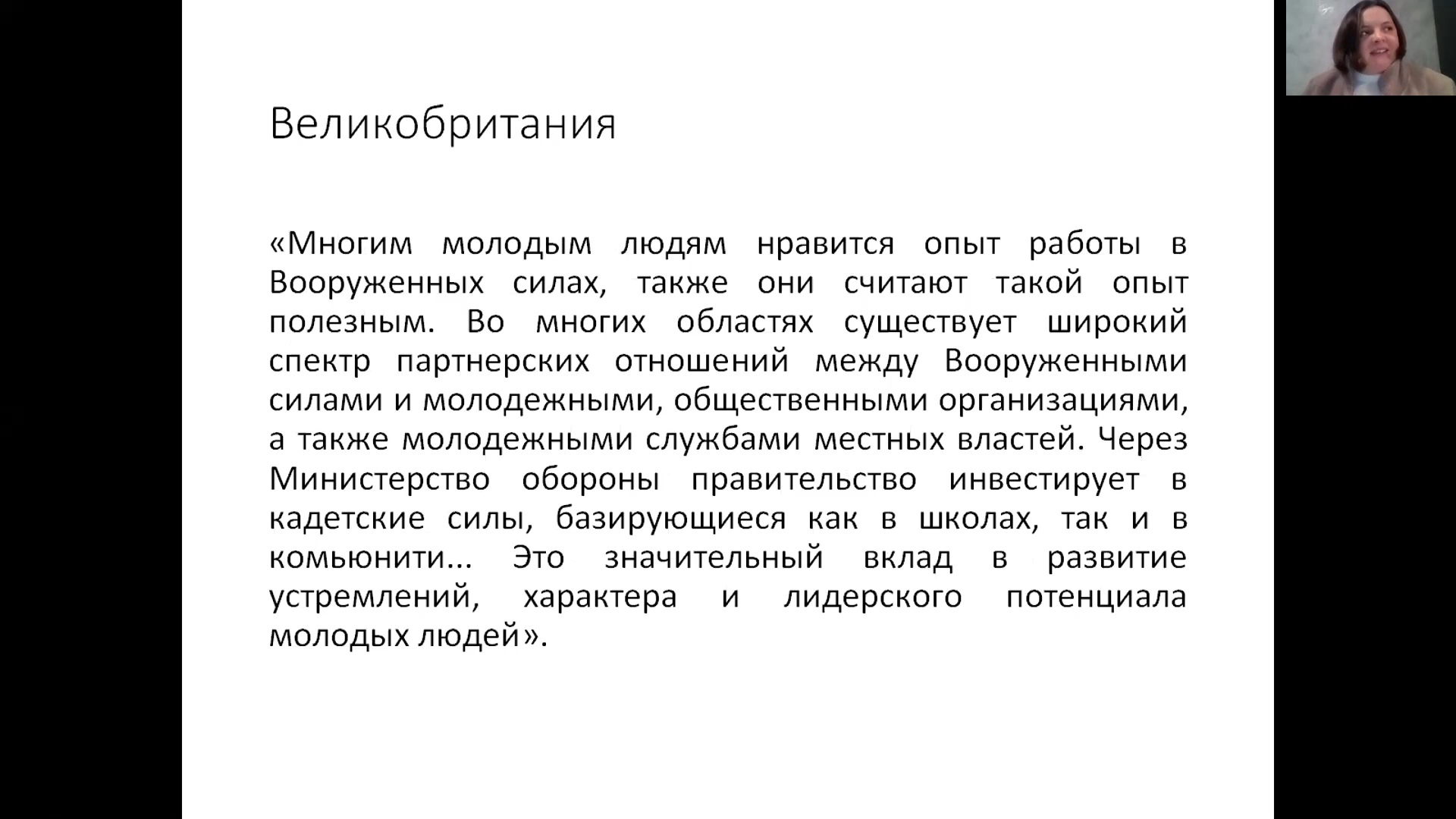
In the studied cases of European countries, the ultimate goal of youth policy is to deliver youth autonomy and independence, and youth policy documents emphasize transition to adulthood. In Finland, for example, young people's independence is one of the key objectives of youth policy. In Russian normative discourse, the main goal of youth policy is to mobilize youth and the resources they possess to develop the country's potential. In Russia, youth policy is aimed at civic-patriotic and spiritual-moral education of youth, expansion of opportunities for effective self-realization of youth and improvement of their potential.
On March 10, a joint seminar of the CYS and the Institute for Youth Policy was held in Moscow. The theme of the seminar was "Youth Policy in Russia and Europe: Global Challenges and Anti-Crisis Potentia"l.
Elena Omelchenko and Irina Lisovskaya presented a report "Images of the Present and Future of Russia in the Context of Contemporary Youth Politics. Expert Opinion." The researchers spoke about the images of the present and future of the country that are constructed by agents of youth policy at different levels of state authority, as well as by representatives of NGOs and scientists from different regions of Russia.
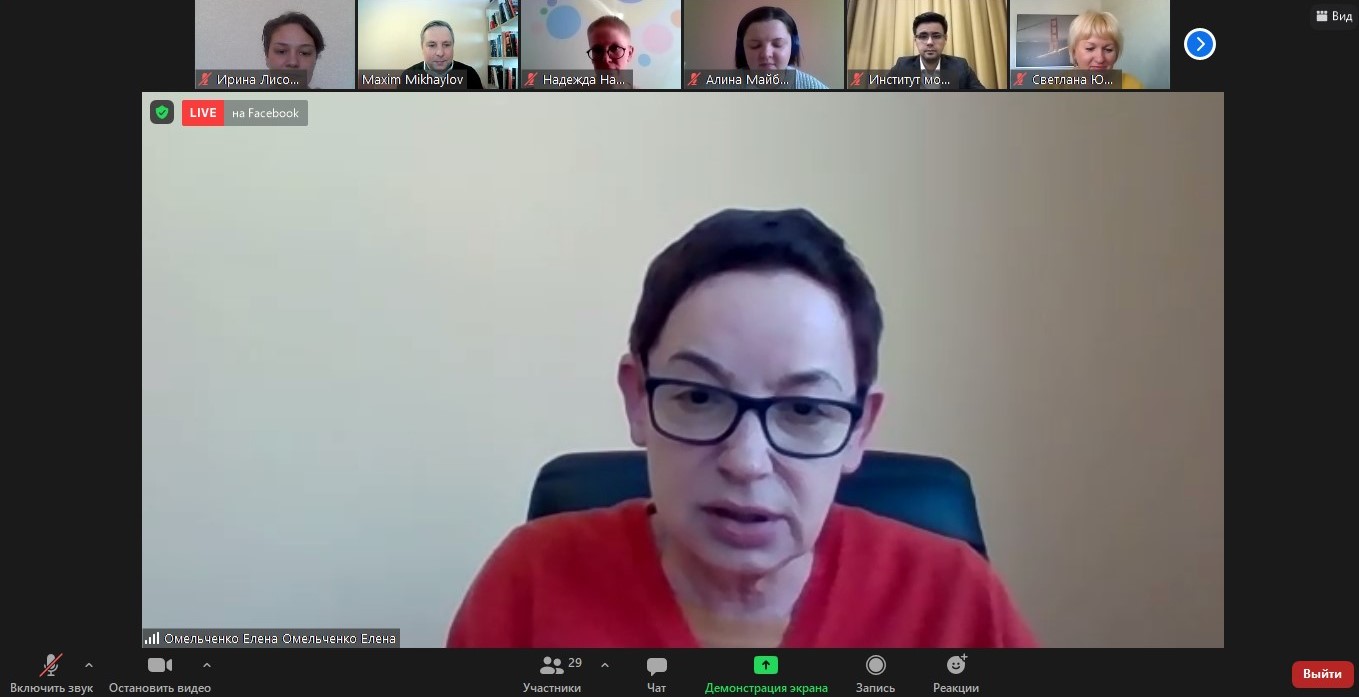
Yulia Epanova and Svyatoslav Polyakov described the construction of the subject of youth policy during pandemic, presenting the comparative experience of Greece, Finland, Germany, Great Britain, and Russia. The researchers noted that in interviews the experts use crisis, problematizing narratives that radicalize interpretations of youth as victims or as people responsible for the subsequent escalation of the pandemic, placing them in the context of securitization and medicalist discourses.
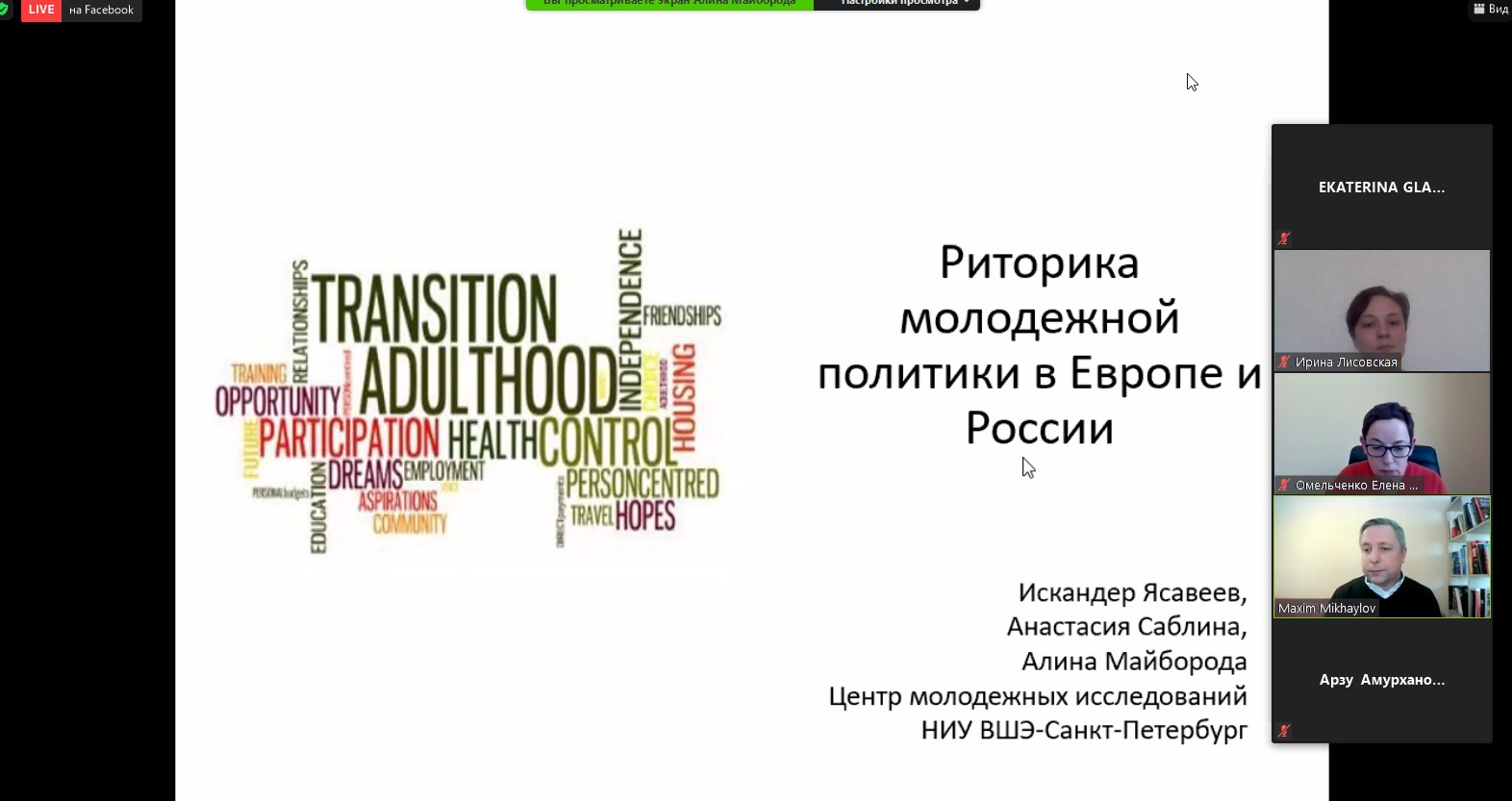
Nadezhda Nartova in her report "From old problems to new challenges: an expert evaluation of the effectiveness of national youth policies in Finland, Germany, Greece, and Great Britain" told about the anti-crisis potential of these countries. Generalizing, we can say that the main advantage is in decentralization of youth policy, consolidation of forces of the state, NGOs and researchers.
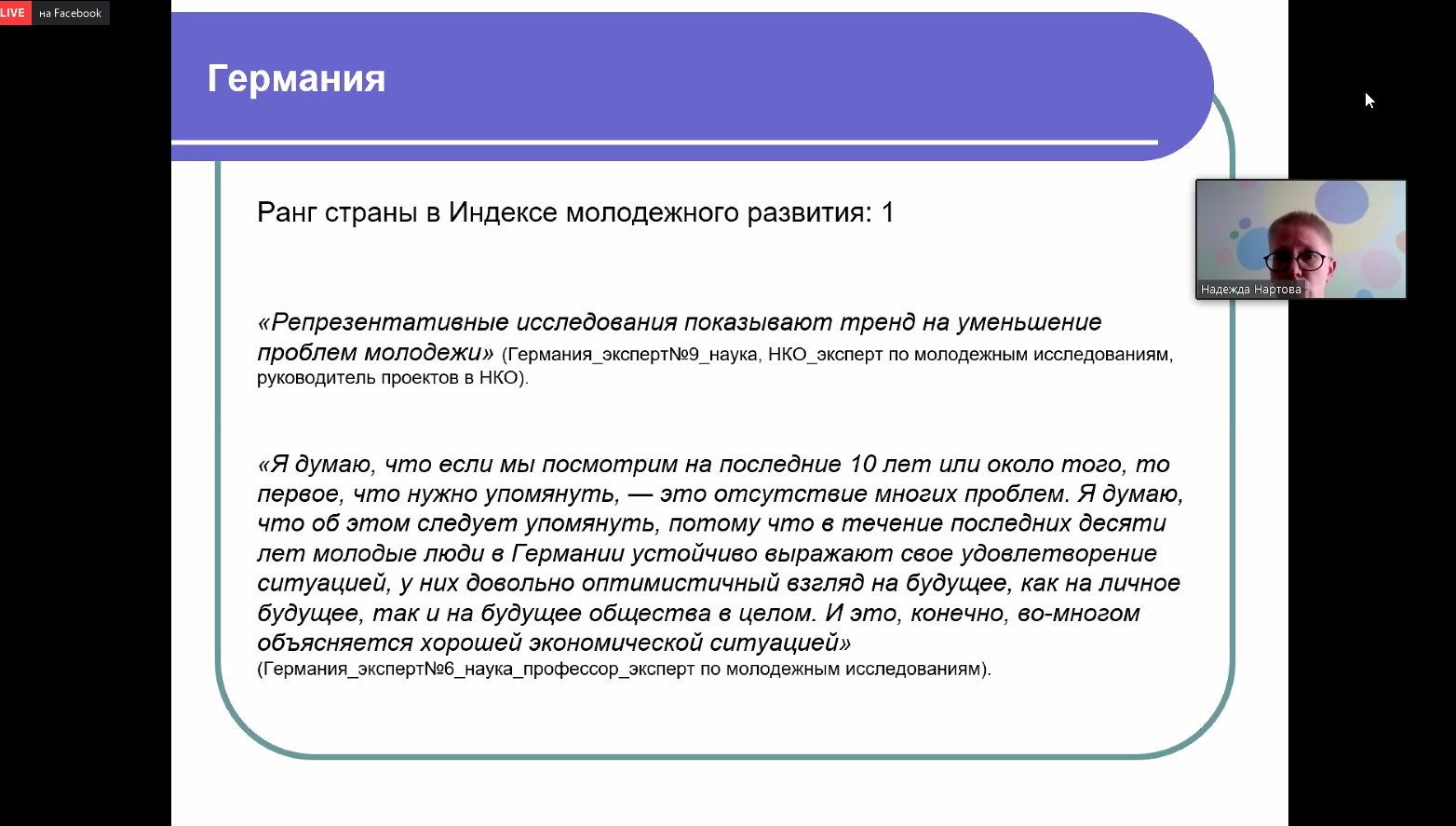
Alina Maiboroda, Anastasia Sablina, and Iskander Yasaveyev addressed the topic of the leitmotifs and discourses of youth policy in Europe and Russia. The leitmotifs of youth policy in Russia are "traditional values," "patriotism," and "upbringing. In the European countries under study, the most common leitmotifs are "independence," "rights," "opportunities," and "participation".
You can watch the entire seminar following the link or in the Institute for Youth Policy's Facebook public page.
The project was supported by the Russian Foundation for Basic Research and the Autonomous Nonprofit Organization "Expert Institute for Social Research" (ANO "EISR"). Project Number: 20-011-31412
You can read more about the results of the project in the information booklet or on the website of the project.
(The copyright belongs to the Center for Youth Studies)
